If the World Ends, at Least We’ll Go Down Reading—Here Are the 10 Best Post-Apocalyptic Books, Ranked
It's the end of the world, and we'll ... read it?
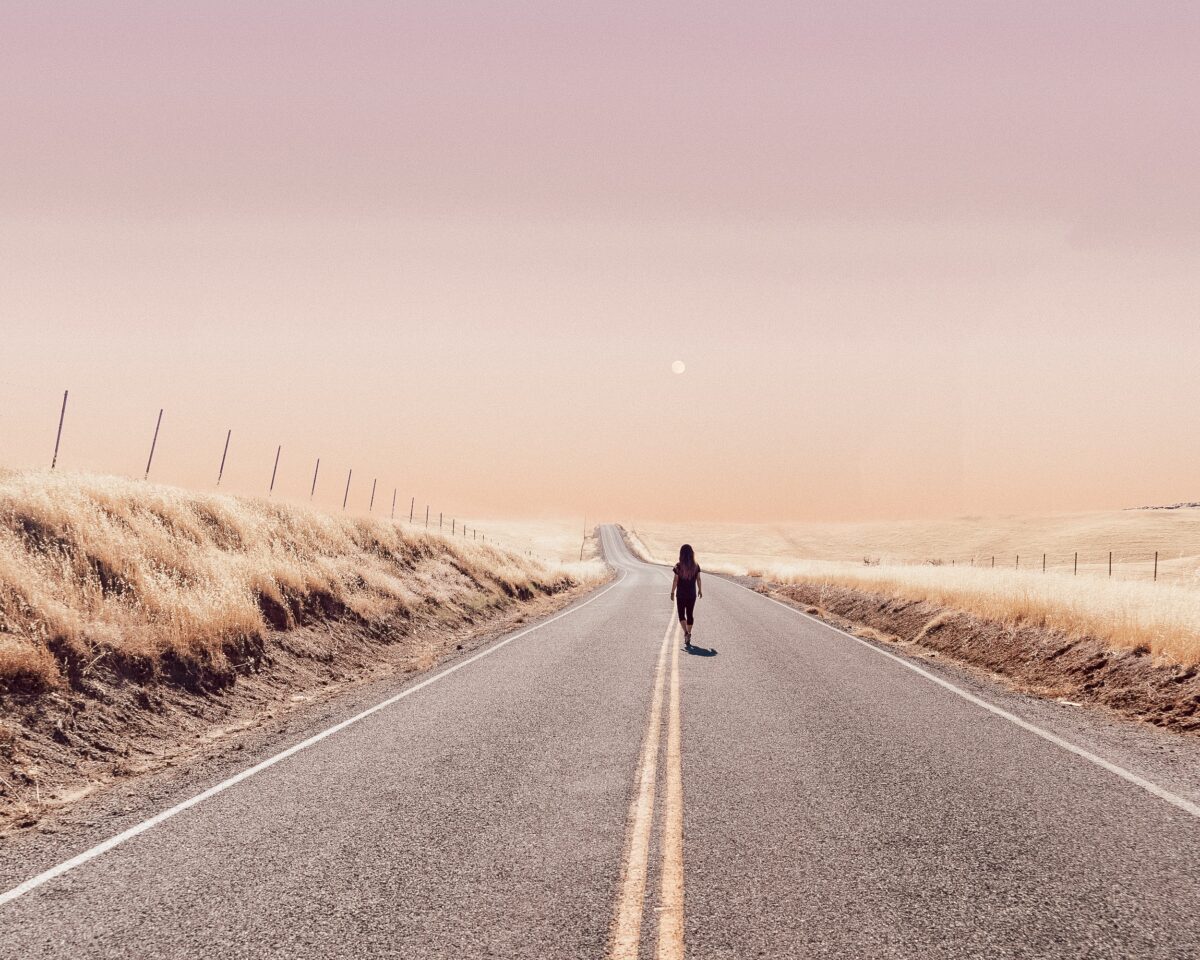
Recently, PBS made a video about the safest place to live through climate change, and they don’t even get 30 seconds into the nine-minute video before a scientist says, and I quote, “Well, there are really no safe places.” Honestly, this is one time when I wouldn’t have minded a news organization burying the lede … just a little bit.
I’m definitely worried about the state of the Earth. And who knows why? Perhaps, it’s that some politicians are determined to drill oil until the Earth explodes (or deflates like a giant beach ball? I don’t know. I’m not a scientist! I just want to listen to them!). Or that we’re living through a global pandemic, and, unlike the movies, a lot of people just actually don’t care! The movies didn’t suggest people would turn into ravenous zombies, and there’d still be a bunch of folks holding up signs saying, “preventing biting is socialism.” Again, hard to say why. Could be anything.
I hope that things improve, I do, I even have an Anne of Green Gables quote on my wall, “Isn’t it nice to think that tomorrow is a new day with no mistakes in it yet?” It is, Anne. But also, tomorrow could be the day the supervolcano under Yellowstone goes off. Or a biological weapon kills everyone with a Y chromosome. Or the actual rapture. I just think we should be prepared.
And maybe that’s why I love to read post-apocalyptic books, I am a person who runs worst-case scenarios in my head all the time. If the supervolcano does go off, I know where my family will meet. Nuclear fallout? Covering the windows with plastic shower curtains and filling the bathtub up with water to drink before it hits the water supply. If zombies rise up from their graves, I have my exit plan. And it involves a motorcycle, stage swords that are under my bed, and a yowling cat in a cat carrier riding on the back (look, don’t ruin this for me—it could work!) All of which to say, I am uniquely qualified to tell you the very best post-apocalyptic novels to read, biding your time, until you’re actually running from zombies. We all hope the world doesn’t end any time soon, but if it does, I think we should know which roads to avoid (because they probably have the most cannibals waiting—basic apocalypse rule, stay away from the cannibals).
[A brief note, I tried to keep this list to novels that explore what the post-apocalyptic landscape looks like, trying to leave off both primarily “actively apocalyptic” timelines, and those too far off from an event, like say, The Giver.]
Here are my favorite post-apocalyptic novels, ranked.
10. The Brief History of the Dead

With a narrative split between the souls in the land of the dead and the (possibly) last human on Earth, stuck in a station in Antarctica, Kevin Brockmeier’s The Brief History of the Dead has a unique spin on the afterlife that has always stayed with me (after death, you exist in a waiting realm until the last person on Earth who remembers you dies, and then you go … somewhere else).
This is such an interesting post-apocalyptic landscape —and I feel like this novel is very overlooked in the post-apocalyptic sphere. It’s beautifully written, and the desperation to survive with our main protagonist, even if she may be the last human on Earth is horrifying, yet oddly hopeful—driving you through the novel. Is hope ever lost? Can miracles happen? What does it mean to live if you’re alone? I won’t spoil how the world actually ended or whether she finds any other survivors, but it’s a neat one.
Also, I’ve always been obsessed with people living in stations in Antarctica. I know, intellectually, how much I hate the cold, but in my heart, it seems so cozy. Even at the end of the world.
9. The Hunger Games
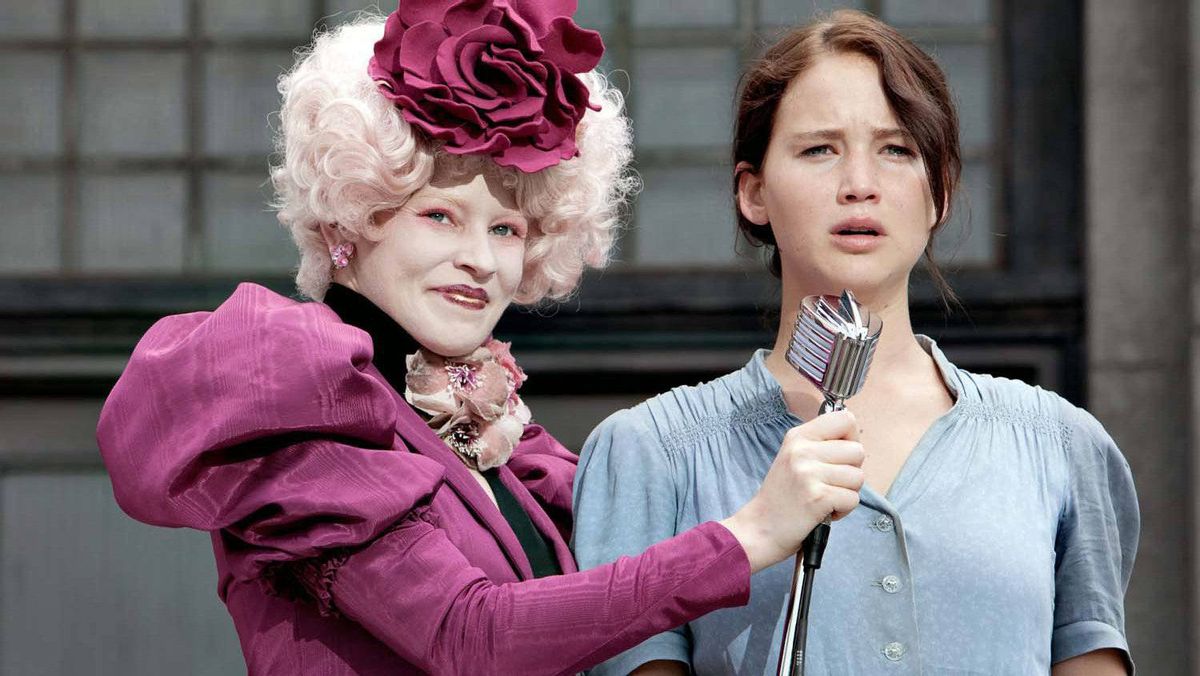
Suzanne Collins’ wildly popular trilogy takes place in a post-apocalyptic country called, Panem (in what used to be the U.S.), where young people are forced to compete in a yearly, flashy reality show—and only one of the competitors will get out alive. When a young woman’s little sister is selected for the games, the woman takes her place, setting off a series of events that will change the world of this novel forever.
Okay, I know this also falls into the dystopia category, however, there is something highly apocalyptic going on here. One, we know that there was a devastating nuclear war. Two, most of the United States seems to be gone—and it doesn’t seem like Panem has any contact with the rest of the world. There may be other civilizations that rose out of the flames, but we have to think much of the world has been destroyed (there’s some pretty sophisticated technology in this world, they would be able to contact others, right?).
I feel like these lists rarely include YA, which is a shame. There’s a myriad of incredible YA books about the aftermath of the apocalypse—Life As We Knew It (about the aftermath on Earth after the moon is hit by an asteroid), Ashfall (about the supervolcano in Yellowstone going off), The Maze Runner (solar flares) and The Forest of Hands and Teeth (zombies!), all come to mind as excellent ones—and so I’d be remiss not to include one. But I went with The Hunger Games, specifically, for this list because while it has all the YA tropes (love triangle and all), the books are so much more than that (although, of course, I love Peeta, I’m not a MONSTER).
Collins’ Hunger Games trilogy is a nuanced look at power and corruption, the media, and the long-lasting effects of surviving trauma. It’s also a rare post-apocalyptic take in which technology doesn’t simply cease to exist, albeit these technological resources are focused on the very rich. Not that we know anything about the one percent taking more than their share of resources. Haha (sobs). Look, I fully believe that the rich have a rocket or a bunker somewhere waiting to survive the apocalypse in comfort. And I’m not criticizing it. Great idea, guys! Can I please come? I’ll bring snacks!
8. Severance

Don’t worry—I am not spoiling the amazing TV show (though I have a LOT of theories about that show, don’t you worry). But Severance the book, written by Ling Ma (though it also features commentary on the absurdity of corporate culture) is an unrelated post-apocalyptic tale. In it, a woman who watched New York City as she knew it disappear, travels across the country with other survivors. The apocalypse here is a virus or weapon of some sort, one that makes people into zombies. But not the “bitey” kind, more like—they become stuck in the routine of their lives and forget everything else.
Severence is a fascinating take on a zombie apocalypse. Divided between memories of the protagonist’s life and the new reality she finds herself in—you get the sense that she was stuck in so many ways before. Basically, once infected, people just start doing a task over and over again, like patrolling a hallway or setting the dinner table. And they keep doing it until they (presumably) perish. The afflicted become a symbol of the monotonous daily lives the characters inhabited in the before times. It’s gloomy and sad and a brilliant metaphor for the complacency in a capitalistic society.
Ma’s novel isn’t perfect, my own book club was SPLIT between those of us who loved it and those who hated it. It was a true book club brawl—but I was in the former group. It’s easy to get lost in the lyrical passages and memories that float through this novel. And in a sense, it feels a little like life that way. What would we be without getting lost in our little routines?
7. Wool
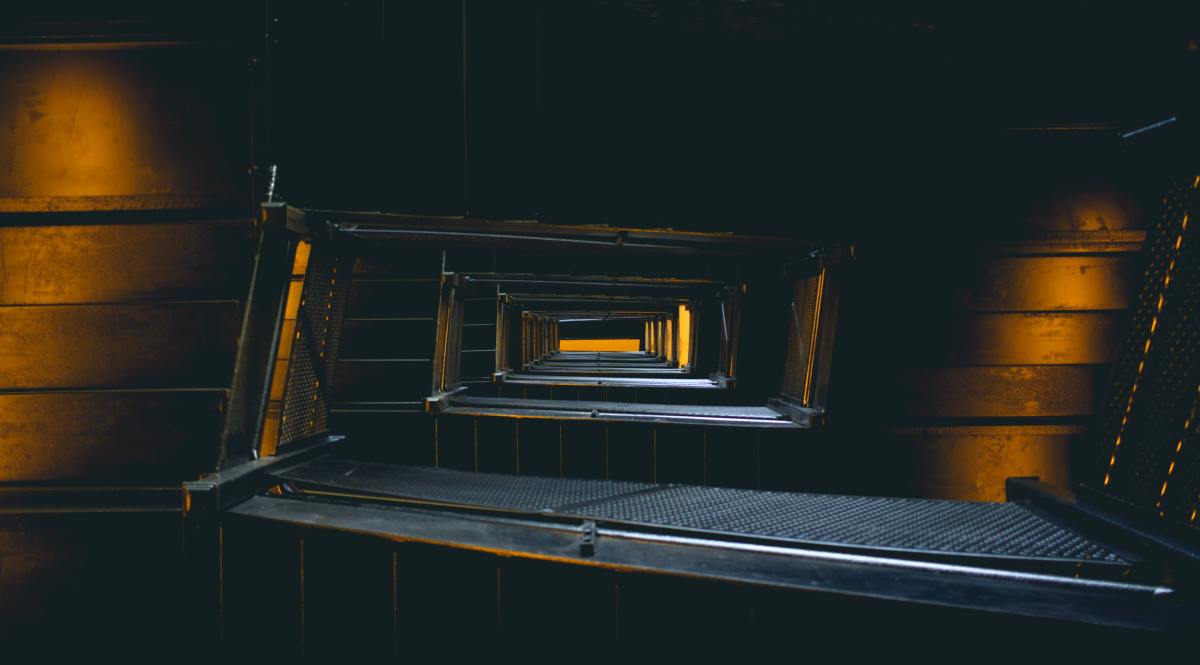
Wool, and its companion novels, have an interesting history. Written by Hugh Howey, about a group of people who have lived generations in an underground silo post-apocalypse, deep underground, it started off being released online as smaller novellas, eventually comprising a trilogy of novels.
Sometimes you feel a little of that disjointedness, but mostly, it’s just such a compelling and intriguing world to inhabit. Think about it like the Snowpiercer train—just set in an underground bunker. The silo goes hundreds of floors below ground, and there’s no elevator, just a single staircase. So, each floor is like its own mini-city and culture, with its own specialties. A farming floor is going to have a different way of life than say, an engineering floor, etc. And traveling between floors can take days, so people do it like a vacation. There’s a lottery to have a baby and strict punishments for breaking the rules. It’s just a world that’s very fun to learn about—and then there are the twists and turns to the narrative which I will not spoil, but it’s a great mystery too.
I don’t why, but I’m obsessed with the idea of living in an underground bunker, I mean—of course, I don’t want the apocalypse to happen, etc., etc. That said, it seems like it would be fun to live in Wool. I’m great in small spaces. Why should I have to leave my bed, huh? TELL ME WHY.
6. Oryx and Crake

In Margaret Atwood’s haunting novel (which eventually ended up as a trilogy), the (potentially) last “human” on Earth—a man who had a hand in its destruction—reflects on the choices in his life that brought him there.
Atwood creates worlds that are so intricate and complicated, and what I love most about her writing is that it feels like she really gets in the head of the person whose POV she’s in. Her characters are often deeply flawed in a way that feels so realistic, but also have good traits and are funny. They’re just … human. The Snowman, the protagonist of Oryx and Crake, is often pretty unlikeable, but it’s his story. He’s the one telling it, so there’s a level of understanding and empathizing you do with him as the tragedy unfolds. The world-building of this universe pre-apocalypse is fascinating, and the new world is haunting and strange. It’s a very different post-apocalyptic novel, that has interesting things to say about biological engineering and technology, and (as always with Atwood’s work), is a pleasure to live in due to her writing, even when the world is painful or uncomfortable.
5. The Road
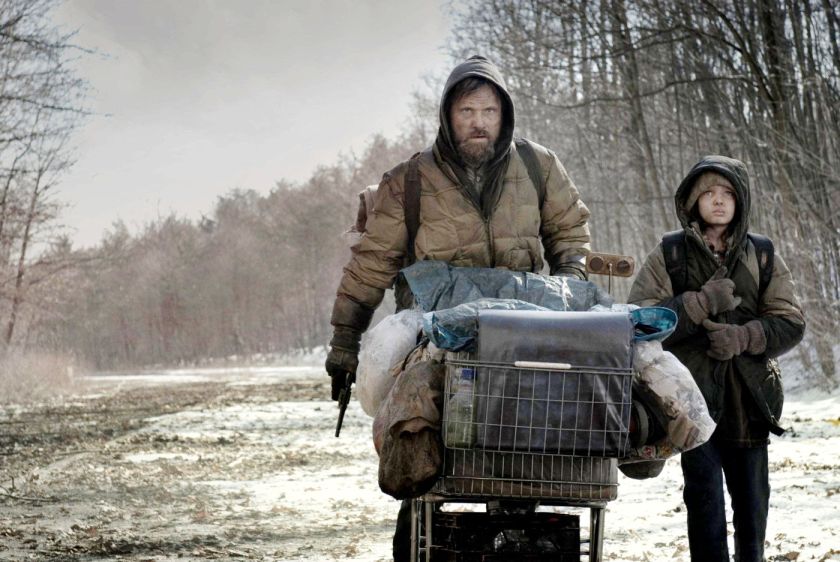
Cormac McCarthy’s post-apocalyptic entry feels so iconic to the genre, that it seems like it must have been in our post-apocalyptic cultural lexicon several decades ago. But it actually didn’t come out until 2006—which, makes me feel like someone is Mandela Effect-ing me on this one, but fine. I’ll believe the internet and “actual dates” rather than my feelings. I guess. The Road follows a father and son as they traverse a post-apocalyptic landscape, trying to survive in the midst of horror.
The Road is … a rough read. It’s bleak and haunting—and if you prefer your apocalypses to be “fun,” this is not likely to be your favorite. That said, The Road is a gorgeous story of loss, love, what it means to survive, and … cannibals. Look, if you like your apocalypses with cannibals, have I got the book for you, kid.
4. The Girl With All the Gifts
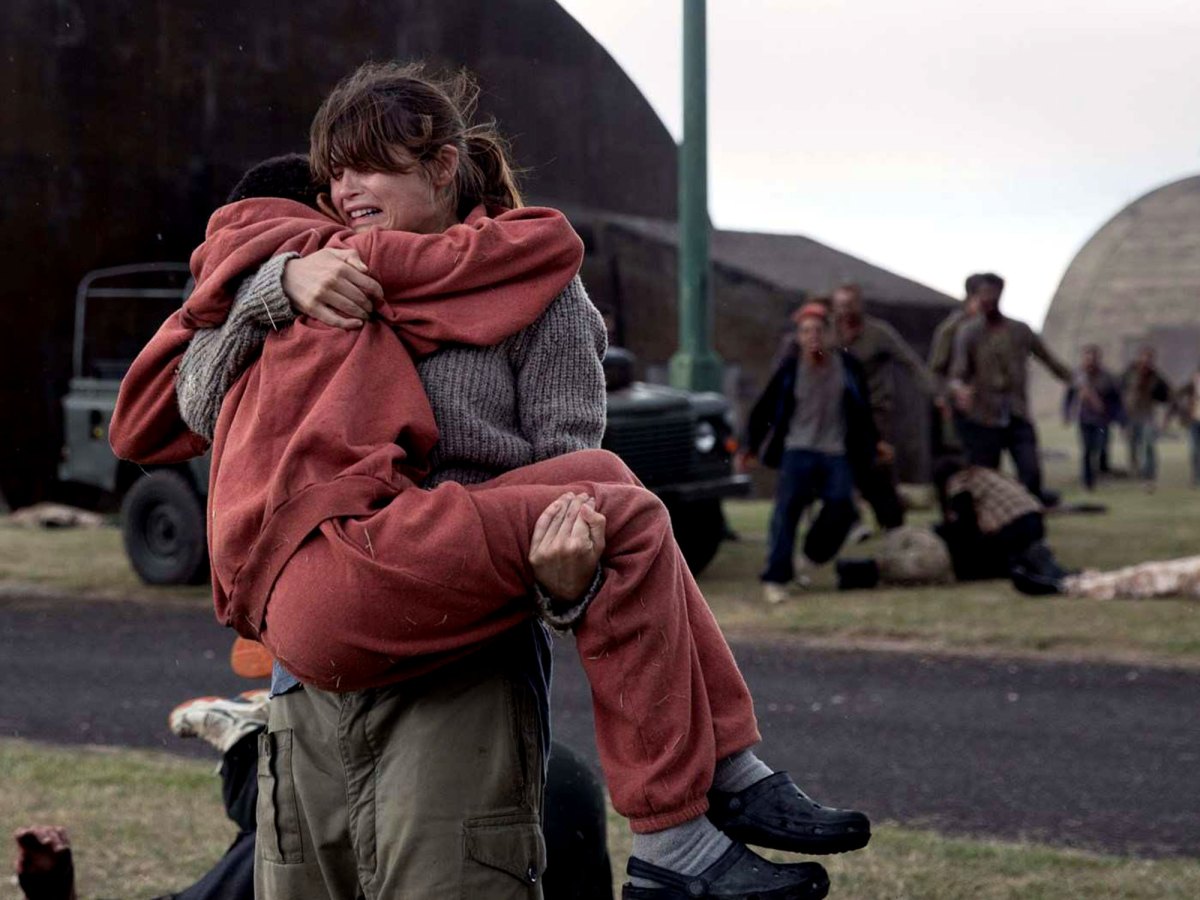
In this novel, written from a perspective you don’t normally get, Mike Carey brings us a girl, in a very unusual school during the zombie apocalypse, who must escape with her teacher (and a few others) after the school/military base is overrun.
Okay, this is going to involve kind of a spoiler—but something you learn quickly, and it’s impossible to talk about this book otherwise, but stop reading if you want to go in totally fresh.
I love, love, love, zombie apocalypse fiction. It’s my favorite apocalyptic or post-apocalyptic genre, but I have found zombie apocalypse books that are truly amazing to be a bit rare. It’s weird, there are one million movies and tv shows that are great—but it’s harder in novels (like I appreciate the research of World War Z, but I just don’t enjoy it as a read). The Girl With All the Gifts is a beautiful book—from the perspective of a little girl who happens to be a zombie—and everything, from the way the apocalypse happened, to the relationships, to the other feral zombie children, is just written in such a thought-provoking (though brutal) way. You fall in love with the little protagonist. And no spoilers, but I love the science behind why the apocalypse happened that you learn later in the novel. It’s a heart-breaking book, but kind of hopeful. In a bleak sort of way.
3. Blindness
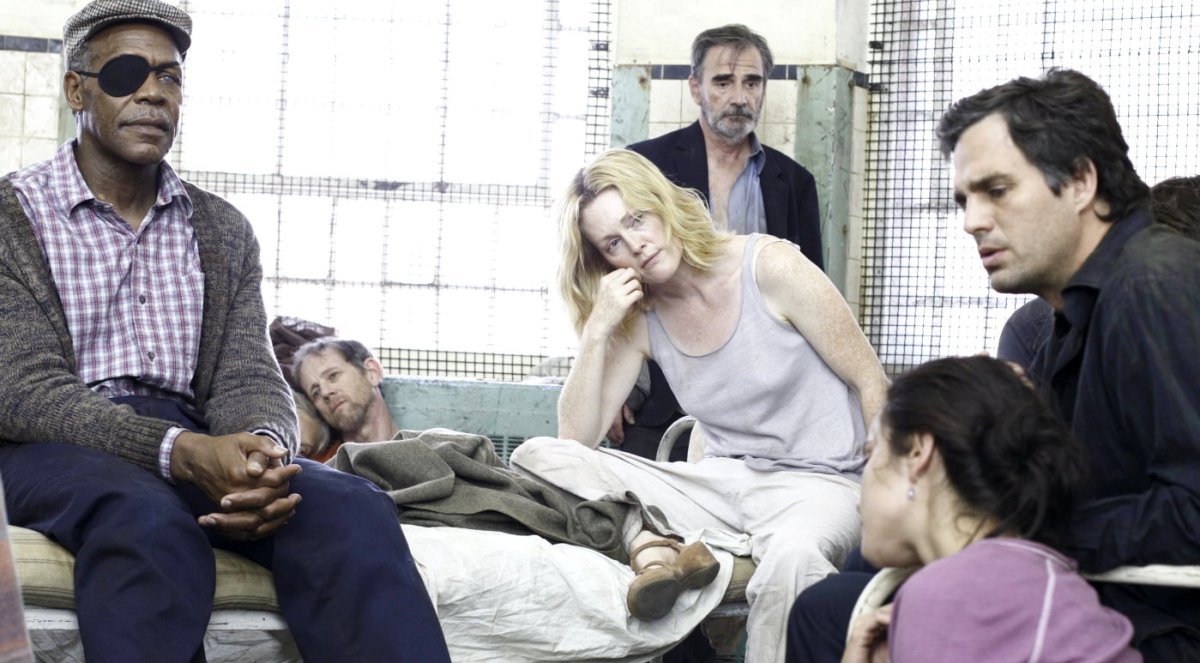
José Saramago’s thrilling, dark novel involves a highly contagious virus—that makes you blind—which sweeps the world incredibly quickly. But one woman is left with sight, and forced to care for herself and others in a hospital—a situation that devolves very quickly into its own, Lord of the Flies-eque society when the rest of the world breaks down.
I love this book. That said, you have to get used to its unusual style. There’s little punctuation—no quotation marks in dialogue, etc. Which can turn some people off, but I urge you to keep going.
One thing that’s great about Blindness is that many post-apocalyptic books are so grand in scale, with road trips, monsters, etc. But Blindness shows us a post-apocalyptic world by focusing in on a very small microcosm of it. By focusing on a hospital, where the first afflicted people are placed, the stakes feel very personal and terrifying. And as society and rules break down—the claustrophobic setting makes it all the more desperate and frightening as some people band together, and others, lose their humanity. The monsters in this book are humans, but they’re more horrifying than any zombie could be.
Trigger warning—this book depicts sexual assault, and that part is really hard to get through. So much of this book is devastating, but I will say, that there’s a sense of hope in this novel amidst the bleakness. There are small moments of kindness, triumph, and beauty, even in the darkest moments here, and they carry you through.
2. The Passage
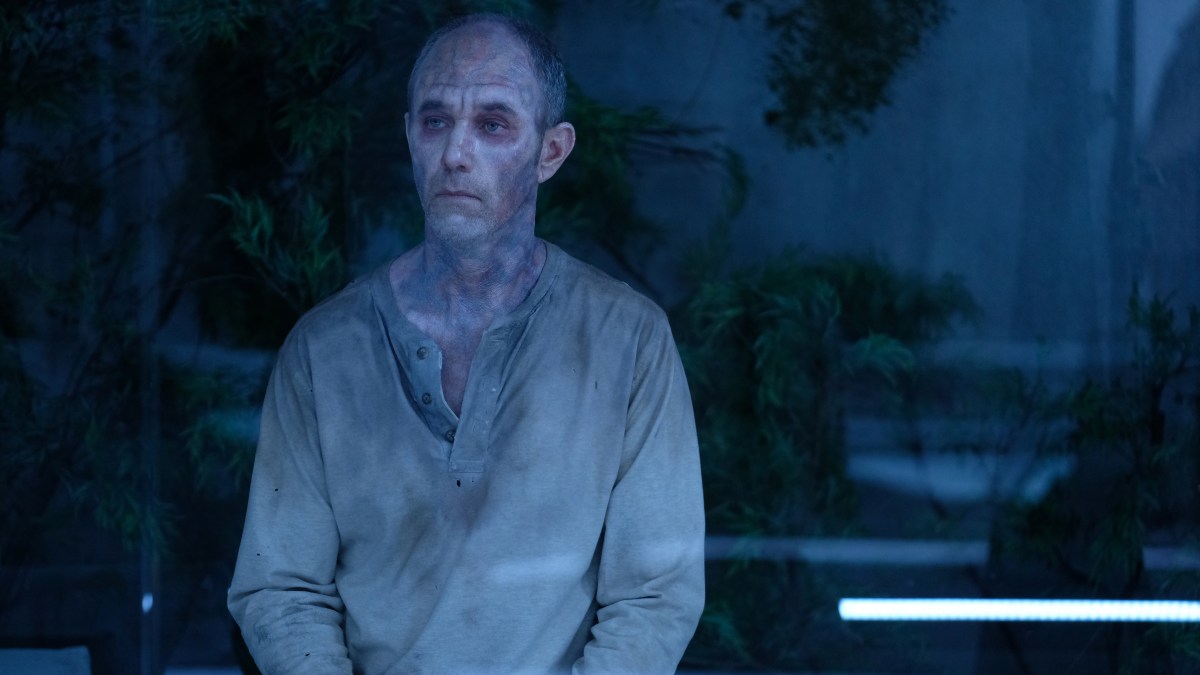
The Passage is truly an epic work to behold, it’s just so intricate. Split into multiple timelines, Justin Cronin’s novel goes from a government agent leading a little girl into an experiment to a society that exists 100 years after the world ended, and all of it feels so satisfying.
This post-apocalyptic world is just so incredibly fascinating, the characters are complex and fully realized, and I was (and still am) obsessed with this book. I didn’t love the sequels, and that will always be a tad disappointing, but I stand by how brilliant the original was. This is a book that, years ago, a guy brought up while hitting on me in a bar, and I was like, you’ve read it?! Oh my GOD. We have to talk about it! And I then proceeded to monologue my theories to him until he just said, “wow, you’re … really nerdy.” Really nerdy, indeed. And this book is so good.
1. Station 11
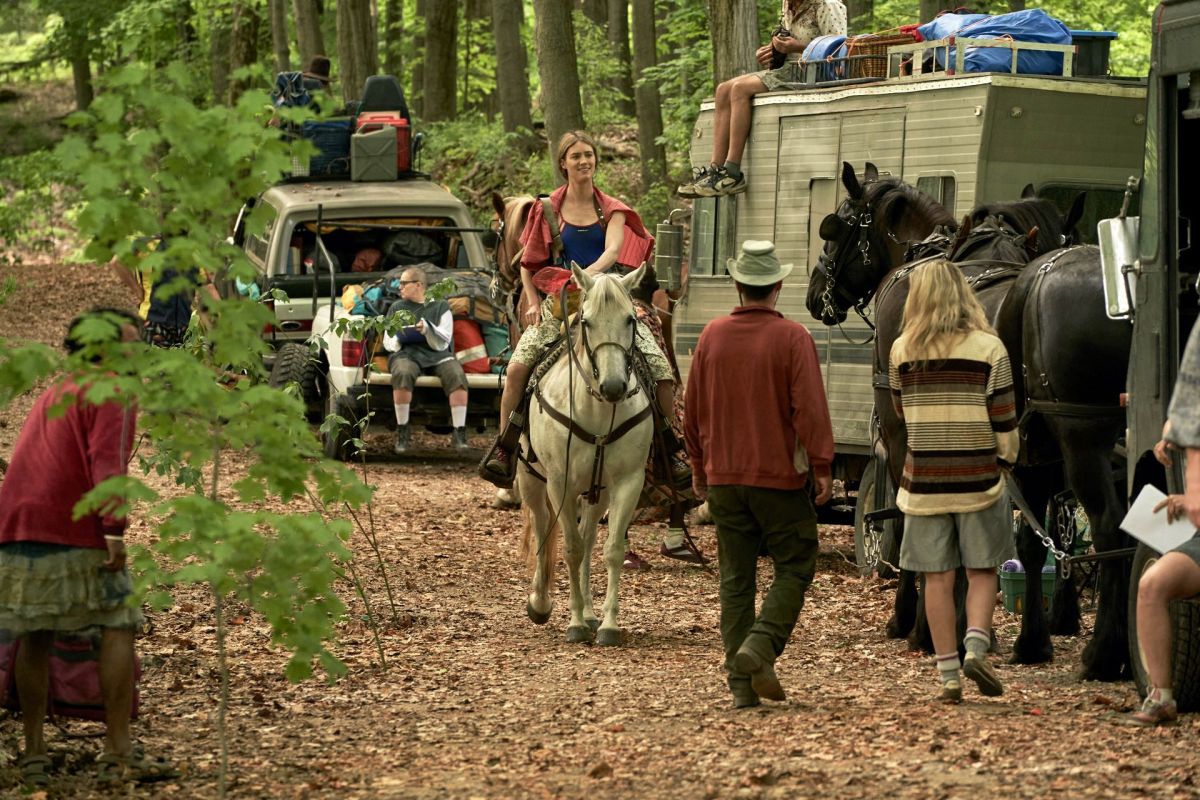
Set a couple of decades after a flu virus wiped out the majority of the population, Emily St. John Mandel’s gorgeous novel features a Shakespeare troupe who travels from “town” to “town” performing in a post-apocalyptic world.
I may be a little biased, I have also performed in traveling Shakespeare troupes around the country, but I’m not alone in how wonderful I think this book is—so I think it’s safe to say it’s incredibly excellent. Station 11 has it all—beautiful writing, characters you fall in love with, and a plot that keeps you feverishly turning pages.
Station 11’s one of those books that I never wanted to end. I could have lived in its pages forever, following the characters wherever they went. I sometimes just google, “Station 11 sequel?” Sadly, like a little lost lamb who just wants to be back where it’s safe. Alas, nothing yet.
Much of the novel takes place in the post-apocalyptic world, but there are jumps in time and flashbacks which give you some of the classic “early apocalypse thriller” vibes. There’s also plenty of danger in the new world without larger societal structures. But what I love is that it’s a novel that keeps humans … well, human. Many are kind, many are doing their best. There’s darkness, but it’s overwhelmingly filled with a lightness. And I love that St. John Mandel explores the way art has always provided meaning to the world, and imagines that some sort of art, music, and beauty will remain. Even after the end of the world. It’s hopeful and it’s sad and it’s everything in between.
So that’s it, fellow apocalypse preppers! Did I miss any great ones (of course I did! I’m only one human, not yet zombie, woman who has not read every book in the universe!)? So, please, tell me. What are your favorite post-apocalyptic novels? What should I read next?
(feature image: via Unsplash)
Have a tip we should know? [email protected]